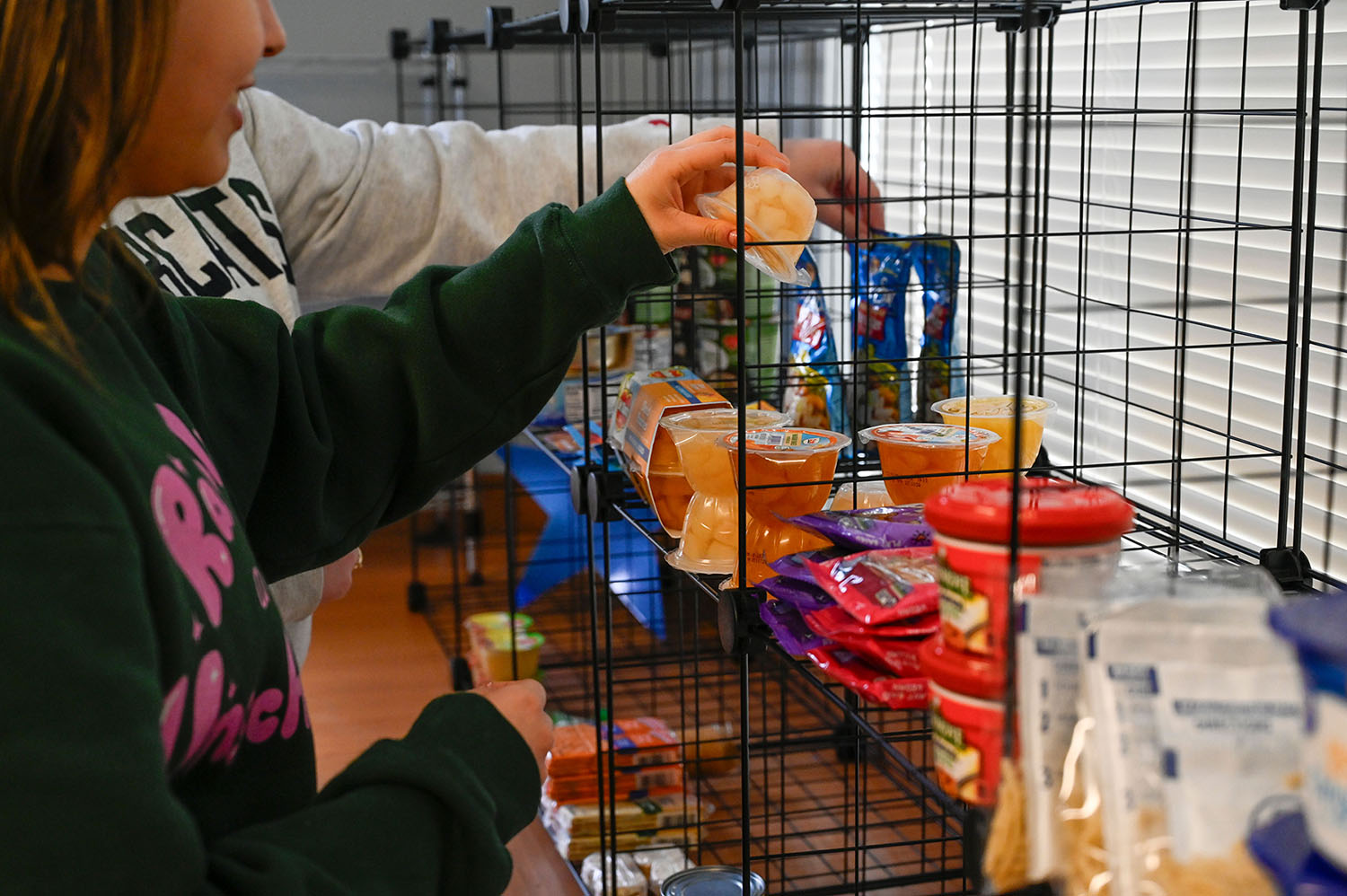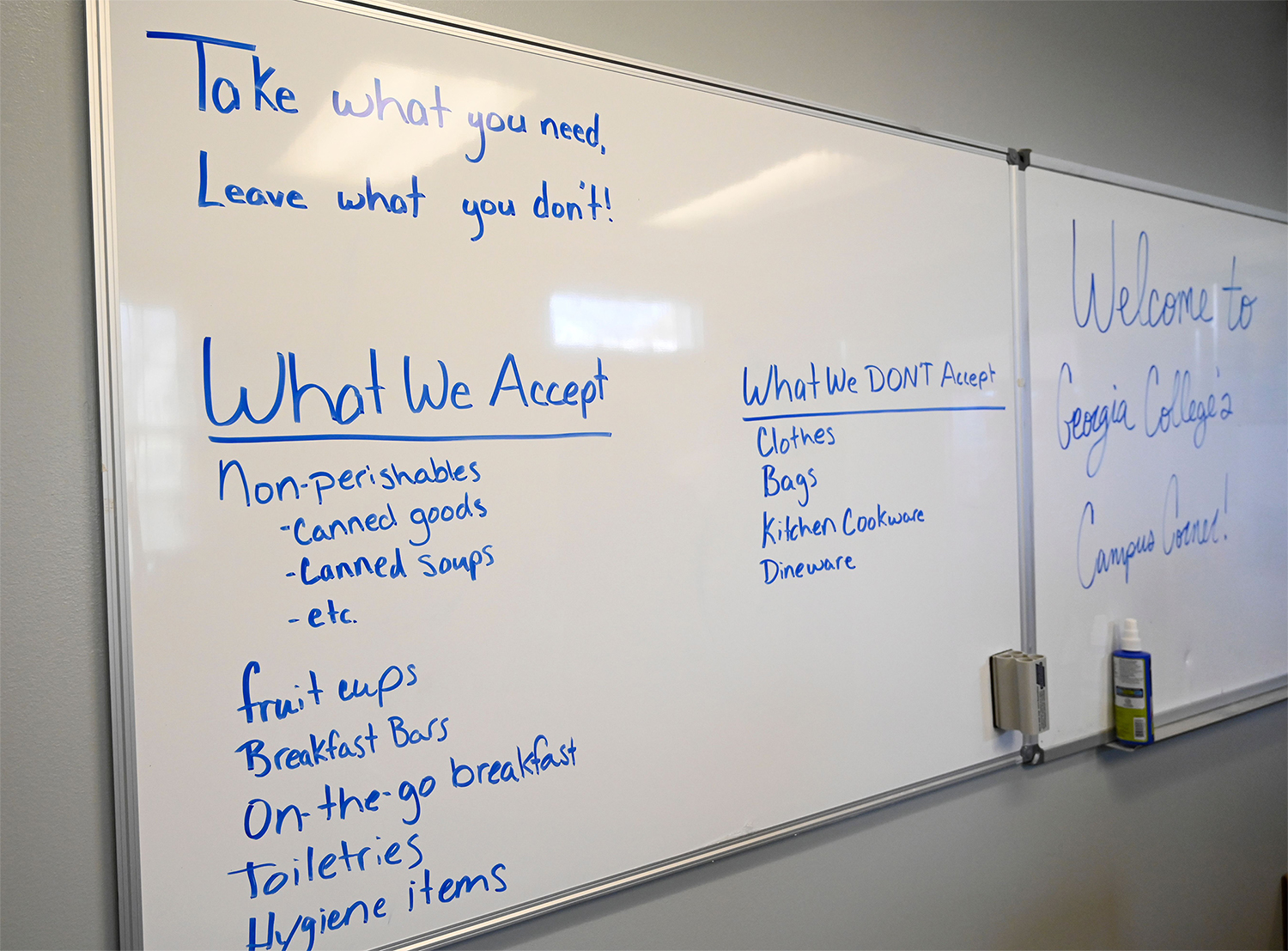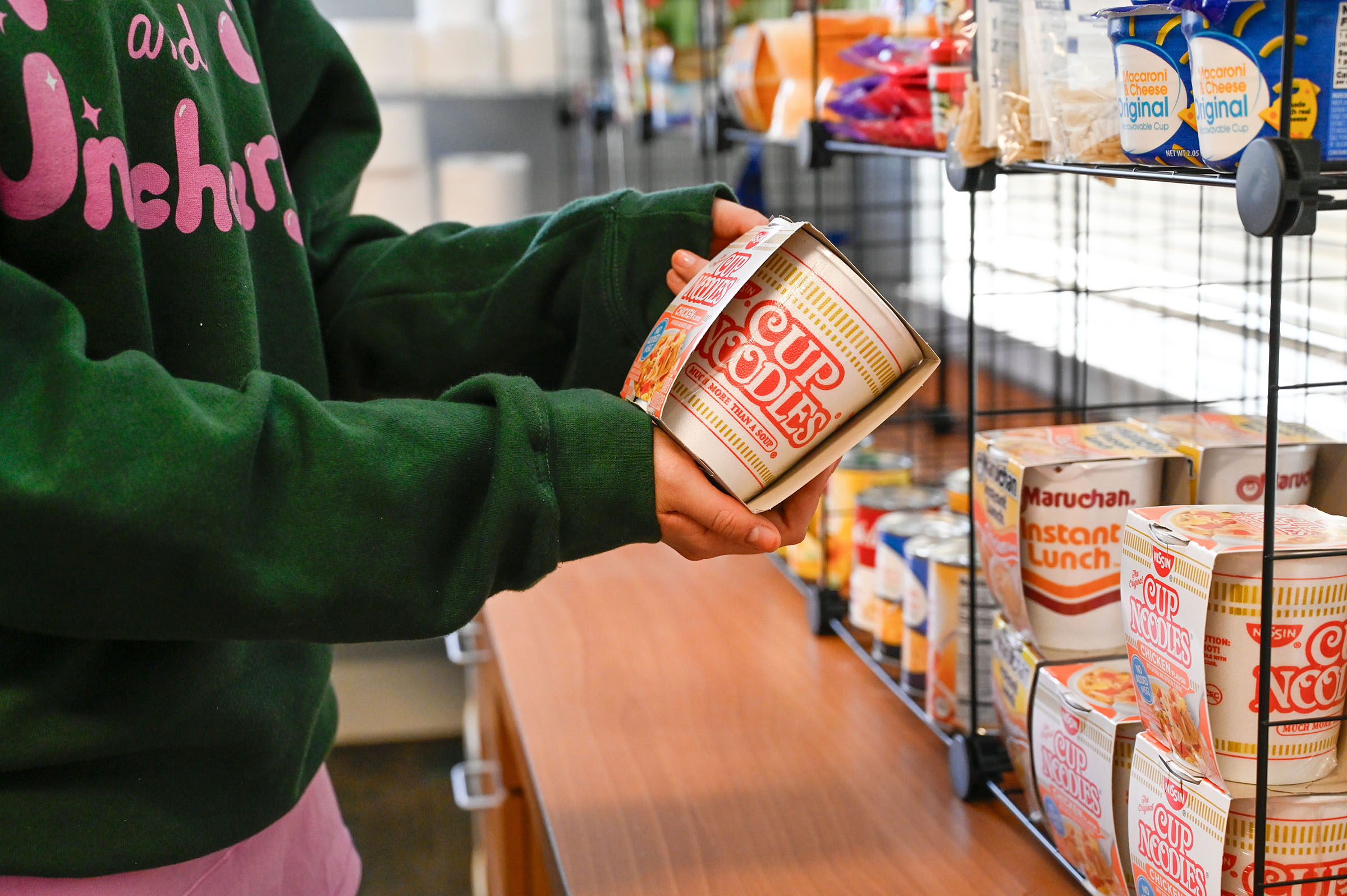GCSU provides for nearly one in four students experiencing food insecurity
by Cindy O'Donnell
I
t’s the time of year for cheer and plenty. But for some, it can be a time of bare shelves and empty plates. College students are not immune to experiencing food insecurity.
According to the Healthy Minds survey conducted last spring, 22% of Georgia College & State University students experienced some degree of food insecurity in the past 12 months, said Amy Whatley, director of Student Care and Outreach.
Hunger — and not knowing where the next meal is coming from — can affect student concentration, class performance and grades.
“From a health and wellness standpoint, we want to see them succeed academically,” Whatley said, “But all these other dimensions of wellness have to be met to achieve that level of success.”
Last fall, Whatley took over operation of Campus Corner, a small room in the basement of the Student Activities Center where students can drop in and take food and hygiene items they need. Free. No questions asked.

Campus Corner food pantry is part of Georgia College’s Quality Enhancement Plan, a five-year strategy to improve student health and wellbeing. Campus Corner is especially vital with rising food prices and cost of living.
Whatley and her graduate assistant Alana Kelly (’23) of Savannah, Georgia, attended the inaugural Georgia Campus Food and Nutrition Security Summit at Georgia State University in October. There, they learned colleges and universities statewide are seeing more students use food pantries.
Some students pay their own way in college, independent of parents, Whatley said. Others rely heavily on friends, moving couch-to-couch.
These uncertainties can be particularly hard during the holidays. That’s why this year Whatley and Kelly are making meal bags for disadvantaged students who remain on campus during Thanksgiving, Christmas and New Year.
“For a lot of people, Thanksgiving can be very sad,” Whatley said. “Not everybody is fortunate to have a good family dynamic or somewhere to go. Maybe by giving a little bit of food, we can alleviate some of that and bring a smile to their faces. Show them someone cares.”
About three students a day access Campus Corner.
A few regulars come in, but Kelly sees different faces each week. The English literature graduate restocks shelves, checks expiration dates and refers students to other helpful services, like Financial Aid.
“I’ve always been interested in community service and helping those around me,” Kelly said. “It’s something I’m passionate about, and I've definitely grown to love doing what I do even more.”
“Food insecurities in college are common,” she added. “It's not a weird, obscure thing to be ashamed of.”

At Campus Corner, students find individually wrapped and easy-to-prepare foods like soup, crackers, nuts, granola bars, instant oatmeal, noodles, canned vegetables, fruit cups, popcorn, bottled water, juice and more. Non-food items are available too, like shampoo, shaving kits, first aid, toothbrushes and toothpaste, menstrual care products and deodorant.
In the future, Whatley would also like to partner with local grocers and hold fresh-produce giveaways.
The pantry is open 8 a.m. to 5 p.m. Monday through Friday, accessible through a side door at the Student Activities Center.
Campus Corner runs on donations. To contribute, contact the Office of Student Care and Outreach or drop food and hygiene products off at the center’s donation box.
People can also select items off an Amazon Wishlist, delivered to the Office of Student Health and Wellbeing.
“It's rewarding to know we’re helping students in need,” Whatley said. “It’s important to support our students who are in the greatest need at Thanksgiving and throughout the year.”
